
Like other big cities worldwide, London is in dire need of affordable urban housing for its residents. Bee Breeders organized an international competition that challenged entrants to come up with creative approaches to this ongoing issue. From the pragmatic to the conceptual, several of the entries explored themes like using shared or state-owned spaces to construct new housing, increasing density within the existing building stock, or reworking low-density building types.
The jury selected three prize winners, a Student Award winner, and Green Prize winner, who are based in the UK, Italy, Denmark, and Sweden. Get a glimpse of each entry below.
1st place: Beyond The Shell
Project Author: Lianjie Wu | United Kingdom
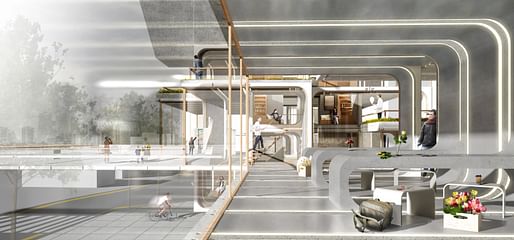
Jury commentary: “3D printing has made great strides in recent years. A host of startups and technology companies are prompting new waves of investment, research, and publicity for this form of construction as a means to cheaper and quicker building. This design proposal takes advantage of the free-form nature granted by these technologies to offer a compelling design for mass affordable housing complexes that grow and mold with their inhabitants. A typical grid-like structural frame is provided as the base infrastructure on which a seemingly infinite range of curvilinear designs can be fitted to; these are fabricated in mobile trucks carrying digital fabrication tools for construction. The perennial question to ‘adaptable design’ is whether it can truly live up to its promise and deliver a project that is fully functional and adequate for its users.”
2nd place: Re.Co.De: Redesigning Contemporary Dwelling
Project Authors: Massimo Bricocoli, Gennaro Postiglione, Stefani Sabatinelli, Nicola Sirugo | Italy

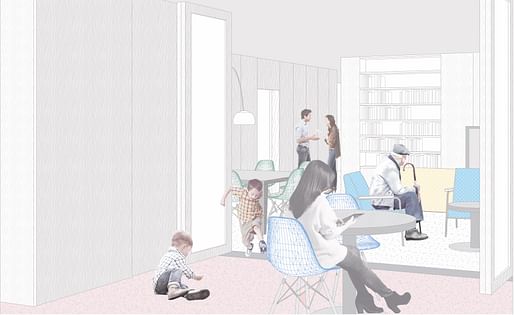
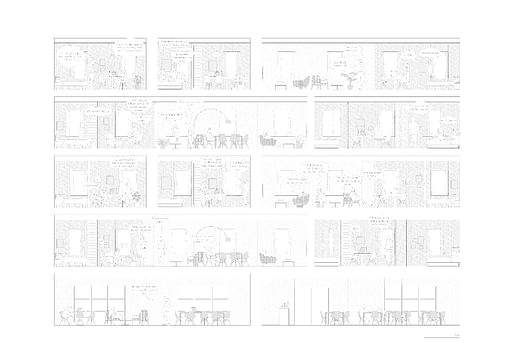
Jury commentary: “‘Coliving and cohabitation serve to increase density by reorganizing the layouts of existing buildings for more efficient spaces, and to include shared amenities for larger groups of inhabitants. The designer of this project states: “the real revolution in housing is indoors.’ The proposal rearranges the interior layout of a typical London housing block, as the designer claims, to mirror the growing variety of job positions and of family arrangements. The ways in which people organize their urban lives to afford housing “is to be more closely investigated, as this brings along significant changes in terms of housing cultures, patterns of solidarity/community, and socio-spatial organization.’ The design offers a selection of flexible interior organizational components - including the bathroom core, the equipped wall fitted with shelving and insulation, and movable partitions. The layout accounts for a mixture of user profiles, from the single adult student, to the elderly couple, to the divorced parent with child. The jury wonders, in what other building typologies can this project be applied?
3rd place: Informal Intimacy. Project Authors: Medina Dzonlic, Daniel Andersson | Denmark
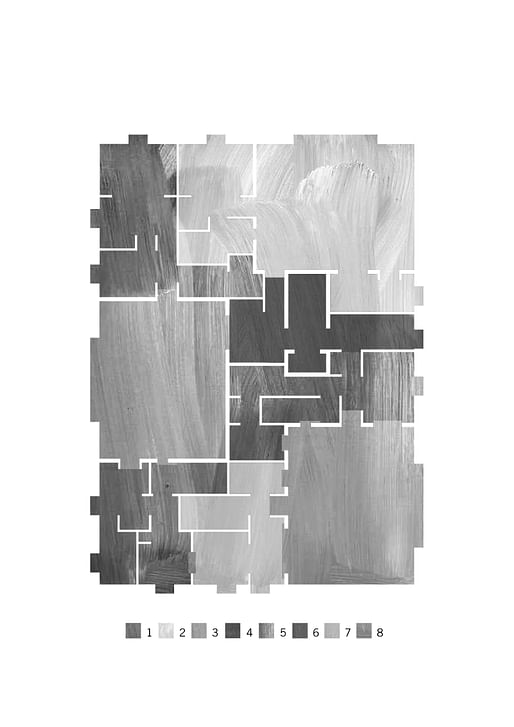
Jury commentary: “This project, titled Informal Intimacy, seeks to establish a new architecture for social housing using modernist principles. In its simplicity and austerity it offers flexibility, with a wide range of spatial combinations that relate to people’s wide-ranging identities. The submission states: “The project dismisses the idea of social housing being an architecture based on standardized minimums, a one size fits all, instead the architectus is established as a field of opportunities.” It offers a mix of intimate and flexible rooms for large collectives or a small number of inhabitants, the arrangements being based on a variation of spatial sequences. The range of drawings, images, and models this submission included proves a highly-refined and thoroughly-studied idea. The jury asks, is this project intended to be suitable only for new construction, or can it also be applied to infill sites and existing infrastructure?”
Find the BB Green Award and Student Award recipients in the gallery below. You can check out all the winning entries in full here.
All images courtesy of Bee Breeders Architecture Competitions.
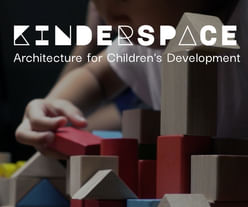
Kinderspace: Architecture for Children's Development
Register by Wed, Nov 13, 2024
Submit by Wed, Dec 18, 2024

Pape Info Point
Register by Tue, Nov 19, 2024
Submit by Wed, Dec 18, 2024
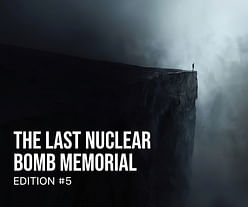
The Last Nuclear Bomb Memorial / Edition #5
Register by Thu, Jan 16, 2025
Submit by Wed, Feb 19, 2025

2025 Design for Freedom Competition: Ethical and Equitable Materiality to End Forced Labor
Register by Wed, Apr 9, 2025
Submit by Wed, Jun 4, 2025
No Comments